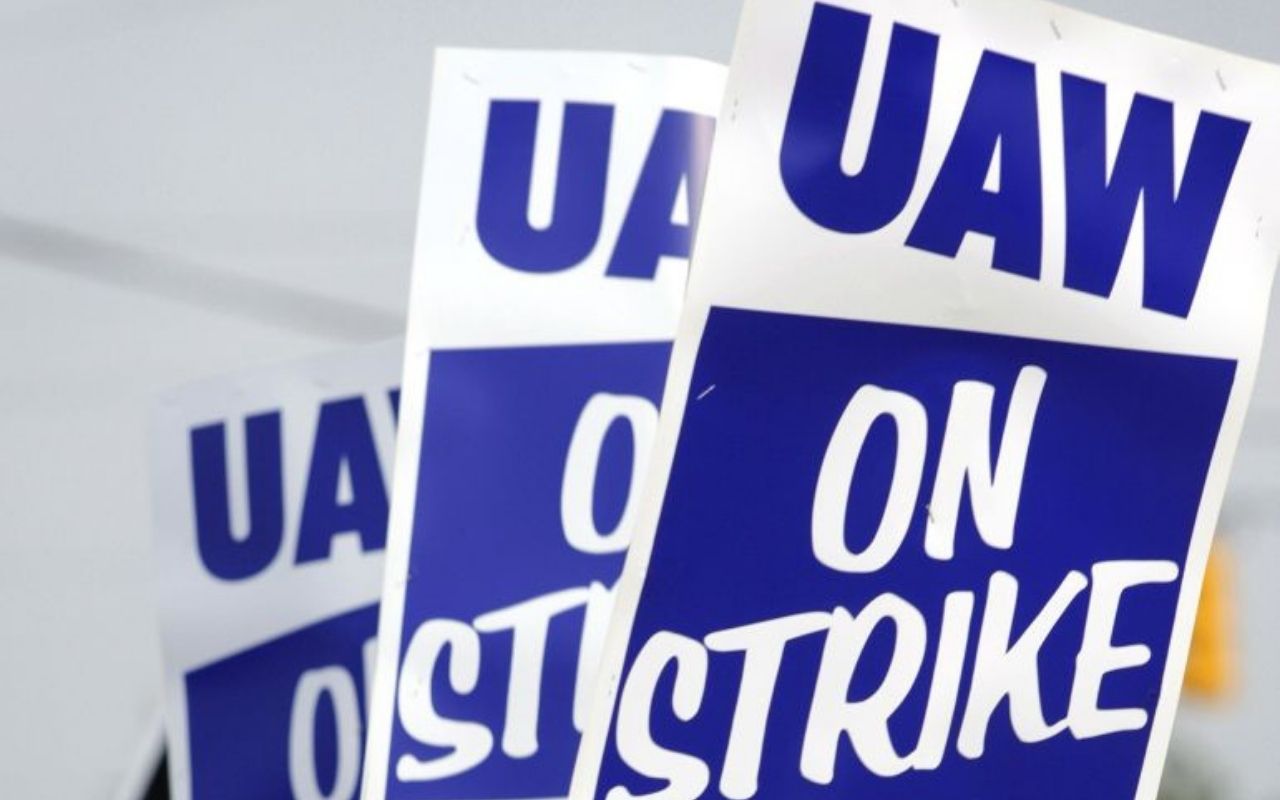On November 3, over 3,000 student workers at Columbia University in New York City went on strike. The thrum of the union drum was audible across campus, interrupting signature liberal arts courses like Contemporary Civilization and Literature Humanities — taught in-person for the first time since the start of 2020. It’s hard to discuss Platonic politics when a righteous fight against inequality and exploitation is happening just outside the door.
What began then is now the largest strike in the country.
For students, the disturbance is more than warranted. The Student Workers of Columbia (SWC), the union for research and teaching assistants at Columbia University in UAW Local 2110, provide crucial work: whether teaching, grading, and stewarding labs, SWC members uphold the undergraduate experience and expand professors’ capacities. The union reasonably demands “a fair contract that includes a living wage, better healthcare, union recognition for all student workers, and protections from sexual harassment and power-based bullying.” More specifically, workers want a hard-earned raise, dental and vision protections in their health care coverage, and neutral arbitration in conflict instead of internally supervised processes that protect transgressors.
Yet Columbia refuses to pay a living wage and support its workers, alleging that its status as an academic institution justifies inadequate, parsimonious treatment. Currently, student workers are compensated anywhere between $5,000 to $19,000 dollars less than the yearly living wage in New York City. Much of what they do make, they are asked to tithe back to the University’s housing system as rent money. Meanwhile, the University has never been wealthier: the endowment saw annual returns of over $3.3 billion, a 20.45 percent increase in step with the $2.1 trillion pandemic-era gains of our nation’s billionaires.
“The University often behaves like a billionaire on hard times,” former bargaining committee member Dominic Walker asserted in More Perfect Union’s documentary about the strike. “Why do we have money to build all these new buildings but we don’t have money to pay people to have dental insurance?”
The union calculates that their “3-year proposal to provide thousands of student workers with an annual living wage in NYC and adequate healthcare” would cost only half of a percent of Columbia’s net assets.
At every turn, the “Activist Ivy” has dragged its heels in the process of recognizing and respecting the union. Columbia pays a fancy lawyer at Proskauer Rose over one thousand dollars an hour to defend their right to pay their own employees unfairly. Columbia reconfigured their payment structure to better withhold thousands of dollars of wages from striking employees; pettily, they canceled those workers’ printing budgets, too. And ironically, Columbia intimidated undergraduate students who participated in a union demonstration in University President Lee Bollinger’s “Freedom of Speech and Press” class. (Bollinger makes $4.6 million dollars a year and lives in an enormous parkside mansion.)
Thus, the fight continues, with strikers heading into their fifth week.
As is in their blood, Columbia’s student workers are utilizing the moment as an opportunity to democratize knowledge— and teach the community about new forms of justice. Informative, buoyant graphics dapple their social media pages, making it easy for undergraduates and allies to figure out how to help with phone calls, emails, and demonstrations. In place of their typical teaching roles, union workers facilitate teach-ins with professors, organizers, and experts, who express their solidarity by moving regularly scheduled classes or events outside or off campus. Offerings included “Columbia and Slavery” with Dr. Thai Jones and Tommy Song, reckoning with the University’s haunting involvement in the institution, and a lesson on the Combahee River Collective and labor with Professor Bernard Harcourt and Keeanga-Yahmatta Taylor. Plus, the union shares plenty of Art History memes, metaphorizing grotesque scenes in Hieronymous Bosch’s “Garden of Earthly Delights” with Columbia’s disdain for its own labor force.
Overall, the workers’ own stories fuel the strike and its widespread support. Flurries of handwritten testimony, clipped to railings on Low Plaza, movingly articulate what’s on the line:
“While at Columbia, I have paid thousands of dollars out of pocket for physical, dental, and mental healthcare not covered by our unreliable insurance. Healthcare costs often eat up more than 10 percent of my annual wages from Columbia, which means I have worked at least one (sometimes two or three) extra jobs while trying to finish a PhD,” an anonymous account read.
“When a faculty member repeatedly acted inappropriately, I was told by the Title IX office that it was better if I could keep my head down instead of pursue a case that ‘might be a gray area.’ I’VE SUFFERED THROUGH GRAD SCHOOL BECAUSE COLUMBIA HAS NOT OFFERED ME ANY WAY TO MAKE MY WORKPLACE SAFER FOR ME,” another worker shared.
In honor of themselves, their peers, and workers everywhere, the Student Workers continue to picket, chanting and looping by the Morningside and Medical Center campuses, energized by speeches at days-end rallies. On a Friday afternoon, Manhattan Borough President-elect Mark Levine and local Councilmember-elect Shaun Abreu shared words of encouragement before the sun broke overhead. A sea of strikers burst into song: first, “Solidarity Forever,” then “Higher Ground” by Stevie Wonder.
As of Tuesday, November 30th, the Student Workers of Columbia have entered mediation with the University’s administrators, a promising sign of “negotiations moving forward.” We have now passed through Strikesgiving; at the University, final exams and papers loom, ungradable without a resumption of labor. Will we live to see Strikemas in Morningside Heights? The answer is clear: as long as it takes to get a fair contract.
